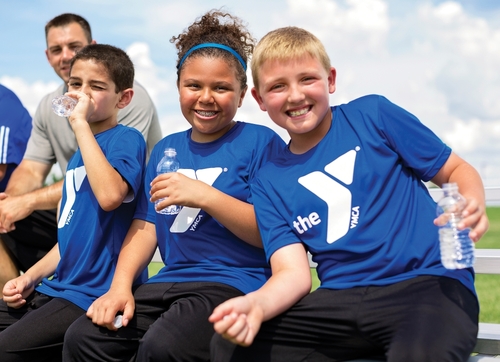BETTER TOGETHER

Water is an important nutrient for the body. Almost every organ in the body needs adequate water to sustain function. Blood volume, brain function, organ function, organ cushioning, and heart function are just a few of the things that can be affected by hydration. As it becomes more hot and humid outside, and summers become more hectic, it is easy to lose track of how much water we need.
Try to avoid any of the juice or sports drinks since regular water is really the best option. Unless you are doing more than one hour of non-stop vigorous exercise, then you might need to replace your electrolytes. They are mostly just empty calories. Coffee actually is a diuretic and should not count, because it can increase dehydration.
So how much water do we need? I use the chart below as a basic guideline, which may need to be altered based on your physical size and activity level.
Activity Level | Number of cups | Who does this mean? |
Average Activity | 8-10 cups of water per day | Everyone should have this much water per day unless you are restricted in water from your doctor due to a medical limitation. |
Moderate Activity | 10-12 cups of water per day | Anyone who exercises light to moderate exercise for 20-60 minutes per day. |
Heavy Activity | 8-10 cups of water daily as a base, plus 2 cups of water prior to exercise, ½ to 1 full cup of water during each hour of exercise, and 3 full cups during the hour of recovery from exercise. | This is anyone who does 60+ minutes of moderate to heavy intensity exercise each day. |
Signs of dehydration: If you experience any of these, you should stop activity and take a few moments to hydrate.
- Thirst (If you are thirsty, you are already dehydrated.)
- Dry mouth
- Dark colored urine that is either dark yellow, or green in color. (Healthy urine should be clear or light yellow.)
- Decreased urine output
- Lethargy, tiredness, or unusual fatigue
- Dizziness or lightheadedness
- Headache
Signs of severe dehydration: If you experience these symptoms, you should seek medical attention immediately.
- Severely decreased or no urine output
- Rapid heart rate
- Spots in vision
- Rapid breathing
- Sudden drop in blood pressure with standing
- Seizure
- Severe lethargy, confusion, or coma
- Fever
- Dizziness that prevents standing or walking
During the summer, make sure you bring a water bottle with you on your travels. There are so many great smart phone apps that help you track your fitness goals one app that is easy and free that will help you keep track of how much water you drink is Waterlog.
Heather Nettle, MA, ACSM-HFS
Health and Wellness Director
Paul and Carol David YMCA
